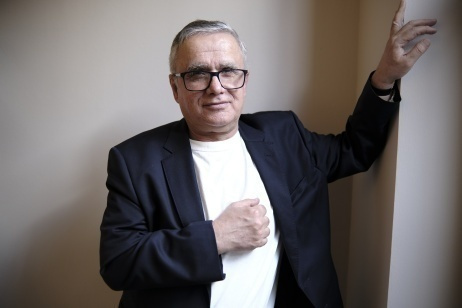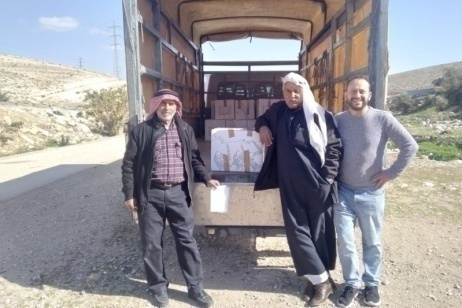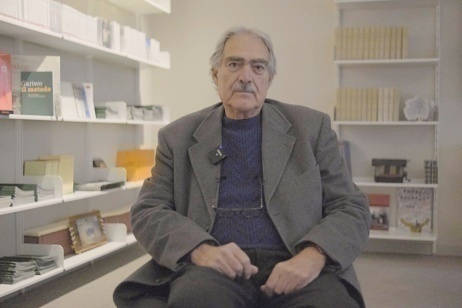Giorgio Perlasca is
one of the most well-known and beloved Righteous of Italy. What are the
initiatives that you and the Perlasca Foundation organize to remember and
spread the story of your father?
There are many places, above all in schools, where I think my
father’s testimony of his experience would be very important. However, we are
pursuing other options as well. For example, on February 10 The Invisible Hero comes out, the book
for children of Luca Cognolato and Silvia Del Francia about Giorgio Perlasca,
edited by Einaudi, that will be presented in March at a children’s bookstore in
Bologna, and in May a bookstore in Torino. Another very important project is
that which we created with the Venice Region in November, about the city of
Budapest and the places of Giorgio Perlasca. Close to various points of the
route, a sign has been positioned that shows the steps that he describes in his
diary. We have also brought children to Budapest, to visit the city and follow
the footsteps of Giorgio Perlasca.
How was the example of your father heard
of in school, in the city and in the community?
It is strong especially between the children and this very
beloved figure, for a simple reason: he demonstrated that any of us, if they
want, can do something. Giorgio Perlasca was a normal person and wasn’t in
Hungary to save someone with super powers. His example teaches us and makes us
reflect that anyone, if want, can say the proverbial “yes or no” of Hannah
Arendt. My father is known as an extremely positive figure, also because, in
the midst of the moral disaster of our society, examples of people like him are
much respected.
Do you think the
example of your father and that of the other Righteous of the Holocaust
represent universal values, applicable for the whole human race?
Of course. I always say that the Righteous aren’t solely the
prerogative of the Jewish world, even if said world had the capacity to standardize
them, giving the concept rules and a structure. Other communities have never
done this, but the core of the Righteous is something common to all of
humanity. The Righteous have always existed, they exist today and they will
exist tomorrow, even outside of the Holocaust. To remember the exemplary
figures during every historical injustice is appropriate, also to not let the
idea of the Righteous remain exclusively connected to the Holocaust.
What is your opinion
about the importance of the European Day of the Righteous?
It is important to try to make this day a day of remembrance
for all the Righteous that are scattered around the world and acted when dire
situations occurred and the injustice grew too heavy. It’s also essential to remember
them and “give them a date.”The sixth of March should be valued in an important
manner and should be spread in cities all over the world. This concerns us, the
Perlasca foundation, in that during the European Day of the Righteous we will
inaugurate a school in Ferrara dedicated to Giorgio Perlasca. We have chosen
this date to better show that the values of the Righteous are absolutely
universal.
In this universal
perspective, who are the Righteous today?
It is never anyone’s hope to be put to the test in extremely
complicated situations like those in which my father and the other Righteous
were found. I think that to be Righteous in our society means also to behave in
a correct and consistent manner, privileging our duties before even our rights.
What is the most
important message of Giorgio Perlasca you can pass on, especially to the
children?
Above the idea of doing something good without expecting
something in return, the fundamental message of the story of my father is to
fight against indifference. Giorgio Perlasca showed that any one of us can do
something and not look the other way and let the suffering of others rest on
their shoulders. This is the spiritual testament that my father left behind,
expressed in the famous quote “I would like that my story is recorded for the
children, so that, knowing what happened, they know also how to oppose this
kind of violence if it should ever repeat itself.” Today, this phrase means
that if we are familiar with the history, we can strive to create inside of us
a series of antibodies against hatred, violence, intolerance and indifference. If
we try, these moments would be first felt on a personal level, and then they
could become collective moments of refusal of these negative sentiments.


"My father, Giorgio Perlasca"
Interview with Franco Perlasca
Martina Landi, Gariwo Project Manager and Coordinator
27 February 2014





